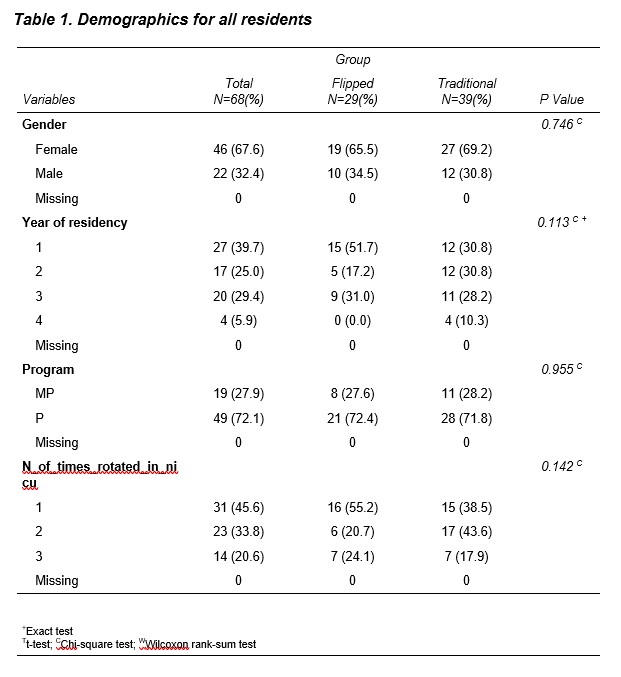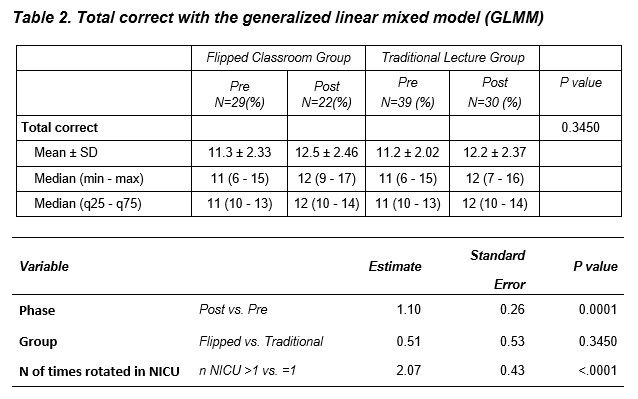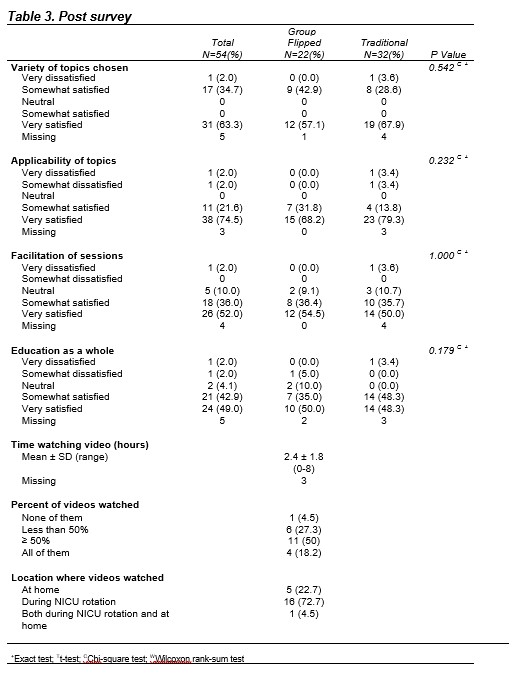Medical Education
Session: Medical Education 8
493 - Integration of Flipped Classroom Education into the Resident NICU rotation
Monday, May 6, 2024
9:30 AM - 11:30 AM ET
Poster Number: 493
Publication Number: 493.3222
Publication Number: 493.3222

Nicole M. Rau, MD (she/her/hers)
Assistant Professor of Clinical pediatrics
University of Illinois College of Medicine at Peoria
Dunalp, Illinois, United States
Presenting Author(s)
Background: Flipped classroom describes an educational format in which learners watch or read introductory content prior to an in-person session where knowledge is assimilated through case discussion. This format has proven effective in nursing, physiotherapy, and medical student education. Little literature exists on the incorporation of this model into residency rotations.
Objective: To determine if flipped classroom education is more effective than traditional education when incorporated into a residency rotation.
Design/Methods: This study was approved by the local IRB. Core educational lectures were created for 8 NICU topics in both traditional power-point lecture format and flipped-classroom videos with subsequent discussion sessions. Pediatric (peds) and medicine pediatric (med-peds) residents on their NICU rotation from July 2020 to June 2022 were randomized by blocks to receive either flipped classroom or traditional lecture education. An 18-question pre-test was administered at the start of the rotation and repeated at the end of the rotation to assess efficacy. Observations before and after education were compared by NICU block and correlated utilizing a generalized linear model. Phase of testing (pre/post), group (flipped classroom v traditional), and the number of NICU rotations (>1 or =1) were considered independent variables.
Results: A total of 68 peds and med-peds residents were randomized, 29 into flipped classroom and 39 into traditional. 54 participants completed the post survey, 22 in the flipped classroom group and 32 in the traditional lecture group. Only those completing both pre and post surveys were analyzed. There were no differences in the demographics for the groups including gender, year of training, training program, or number of previous NICU rotations. The level of resident satisfaction was similar between the groups. Residents spent on average 2.4 hours watching the educational videos in preparation for lecture with 68% of respondents watching > 50% of available content. Most respondents utilized down-time in the NICU to prepare. Both groups improved their post-test scores by a mean of 1.1 questions (6%). On average, those with more NICU experience scored higher.
Conclusion(s): Flipped classroom education was as effective and as well received as traditional lecture education in the NICU. Residents in the flipped classroom group spent just over two hours in preparation for the sessions and largely did this during their rotation. Next possible interventions may include increasing the level of resident preparedness for flipped-classroom education and assessing faculty satisfaction.



